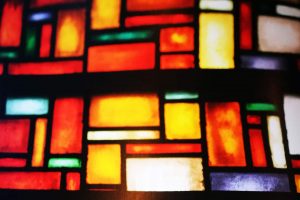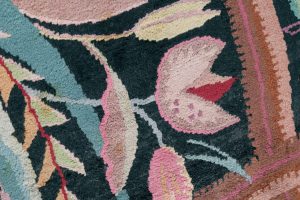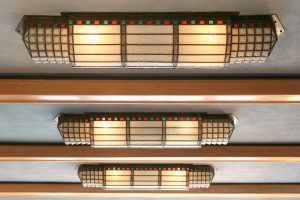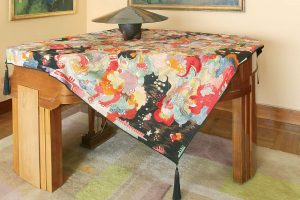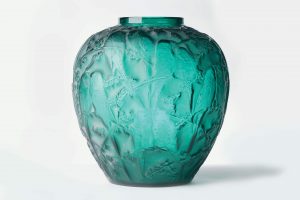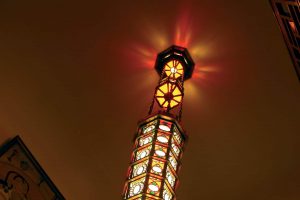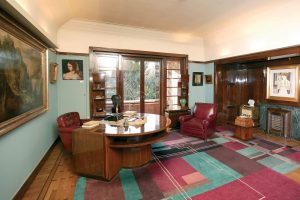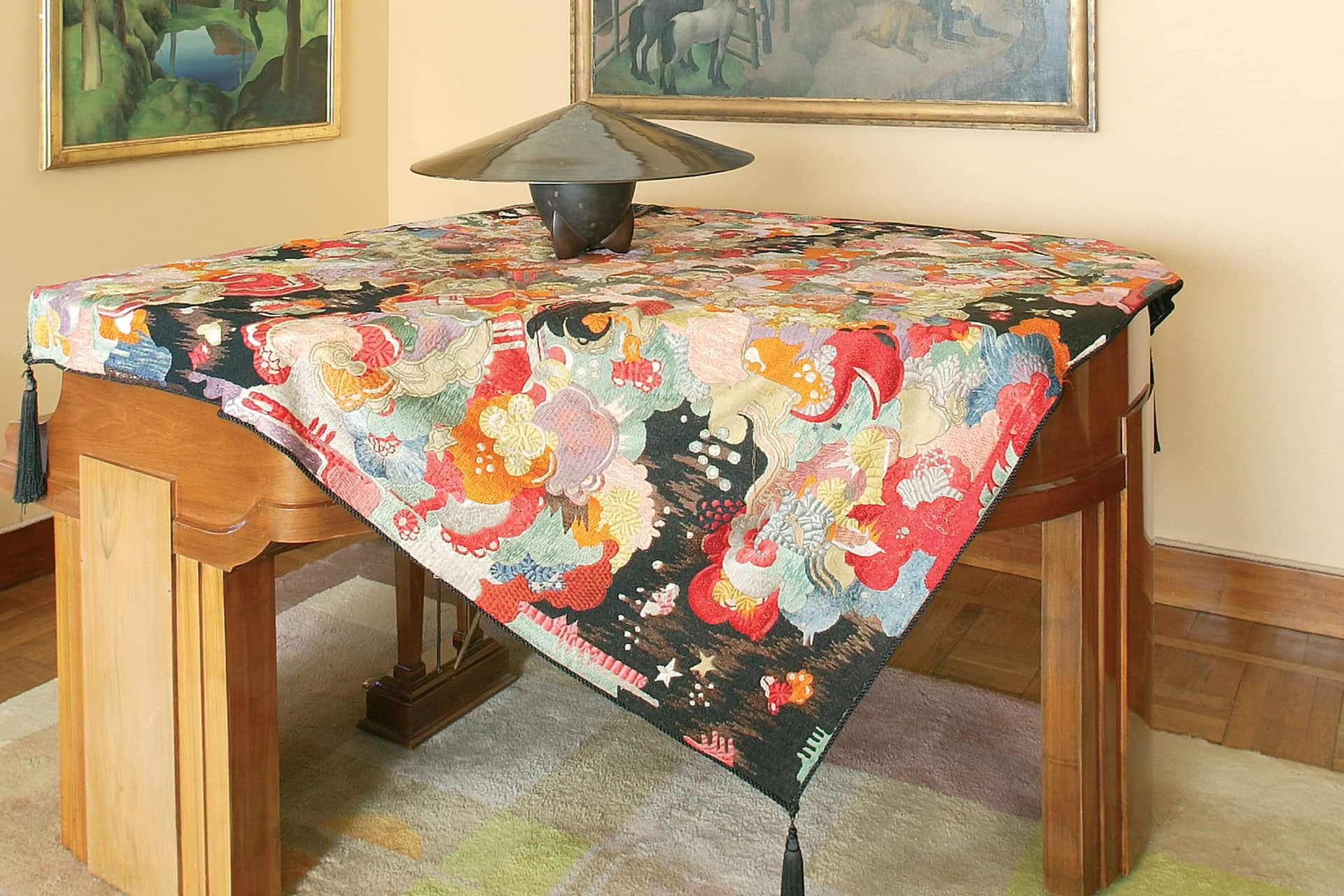
Tapestries
Jaap Gidding (1887-1955)
Jaap Gidding plays a central role in the decoration with his hand-embroidered upholstery fabrics and rugs. At the time, despite some exhibitions of Moroccan art featuring Berber carpets with red and brown geometric decorations, rugs were not yet seen as important decorative elements. Once again, the Van Buurens showed daring by giving them pride of place in their interior.

In the music room, Jaap Gidding left his mark with a hand-embroidered tapestry placed on the piano.
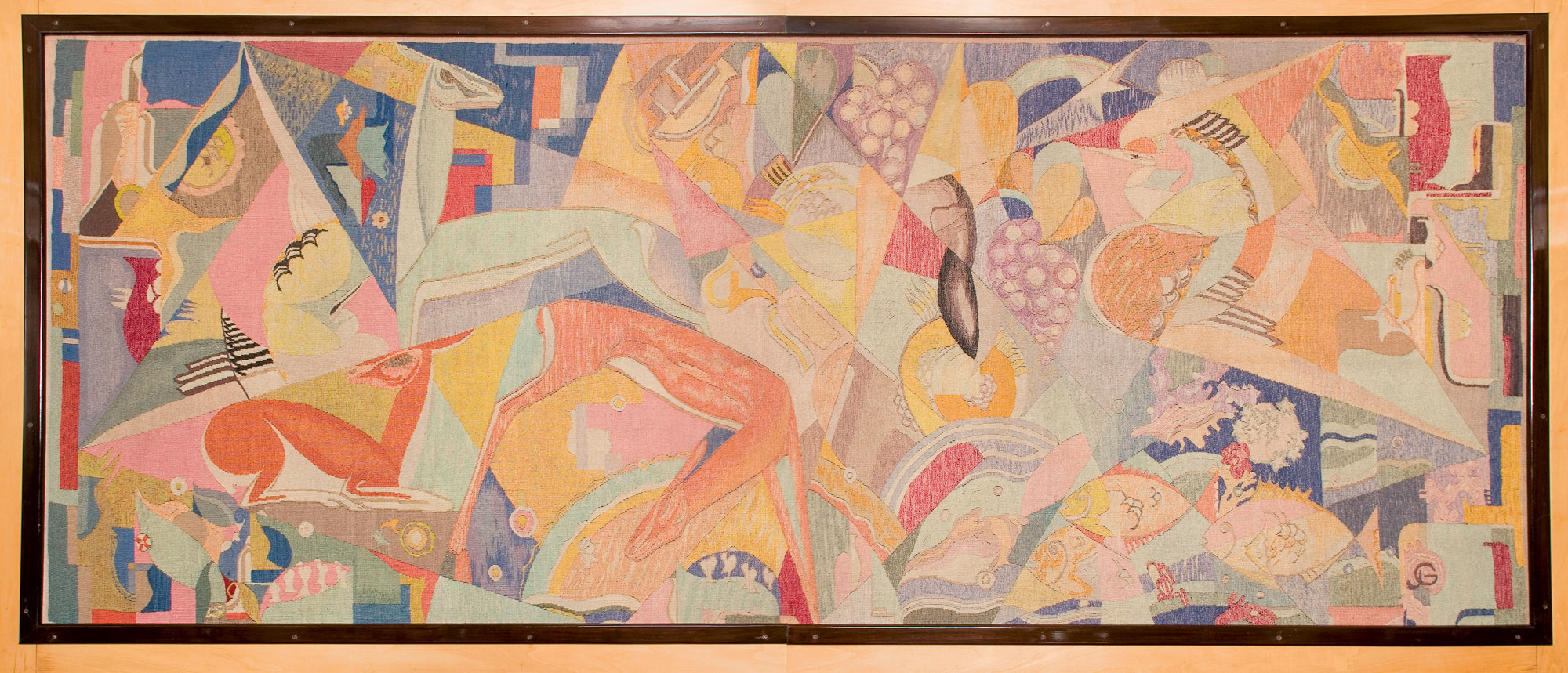
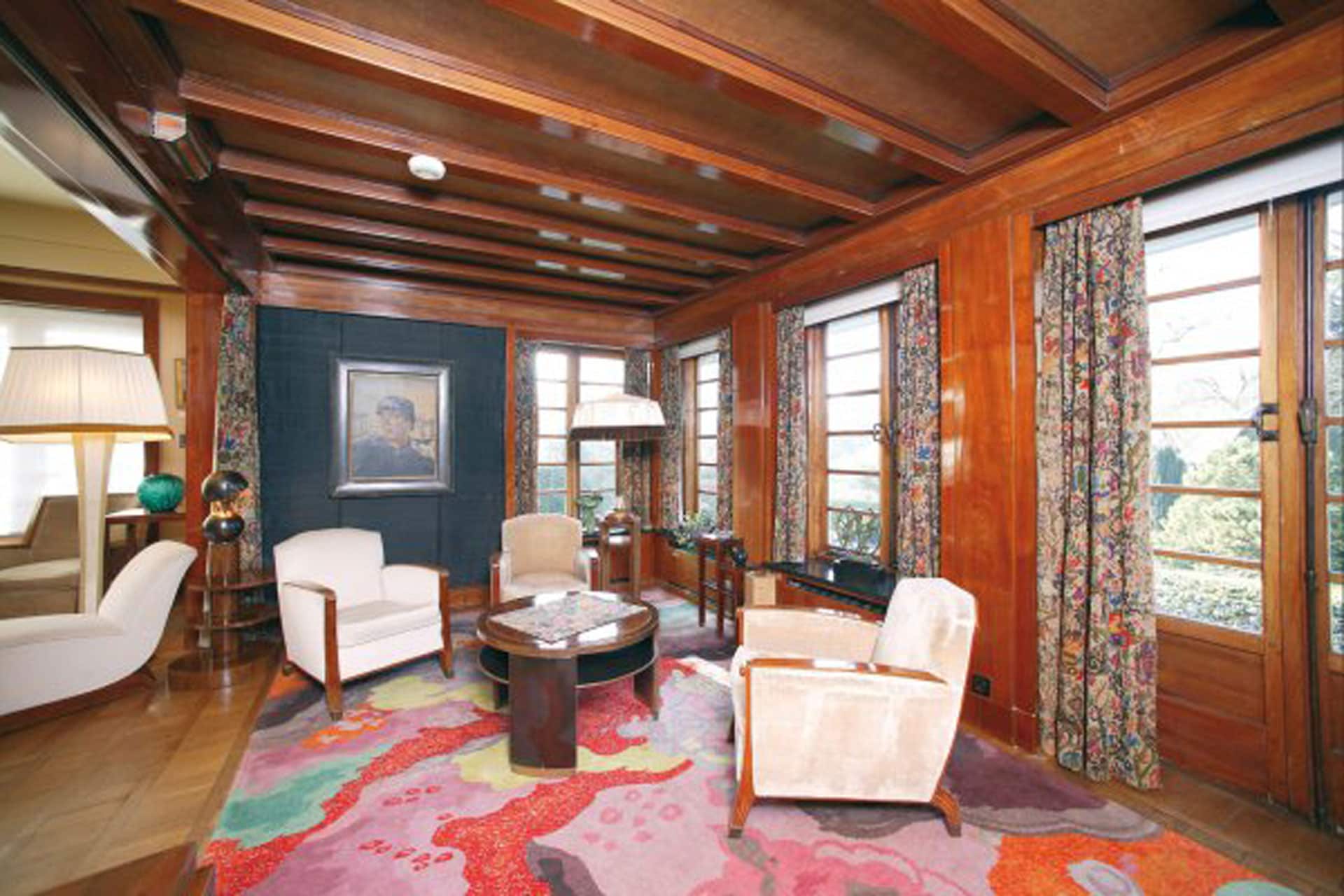
Rugs
Jaap Gidding (1887-1955)
The harmony of colours between Kees van Dongen’s (1877-1968) “The Thinker” (stolen in 2013) and Jaap Gidding’s monogrammed carpet is no accident. David Van Buuren ordered a carpet from the Dutch designer, telling him that he wanted it in the same range of colours as the painting.

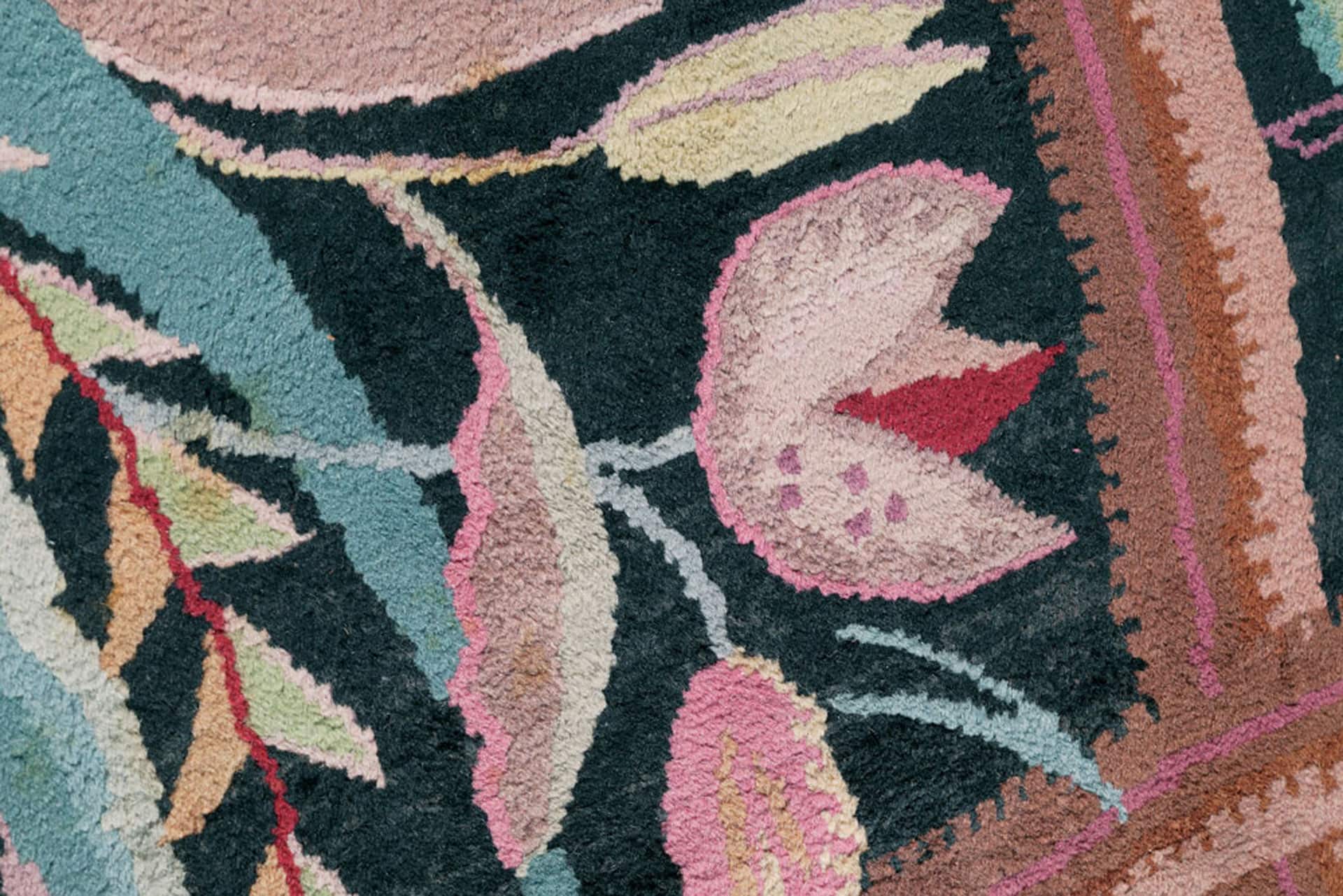
Maurice Dufrêne created all 5 of the rugs that make up the Botanical Gallery. Throughout his career, cool-hued floral patterns remained the favourite theme for his rugs, fabrics and stained-glass windows. This set is now part of our national heritage.

